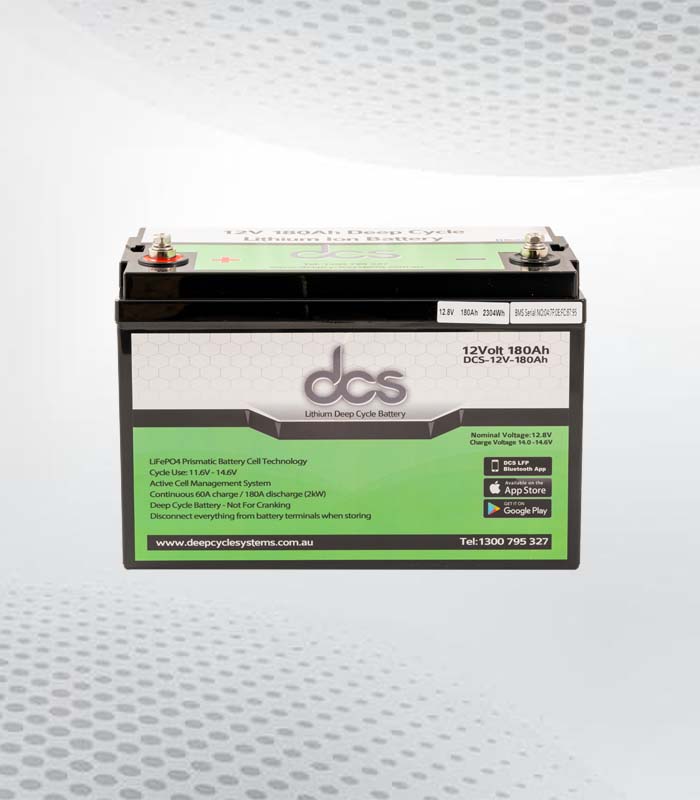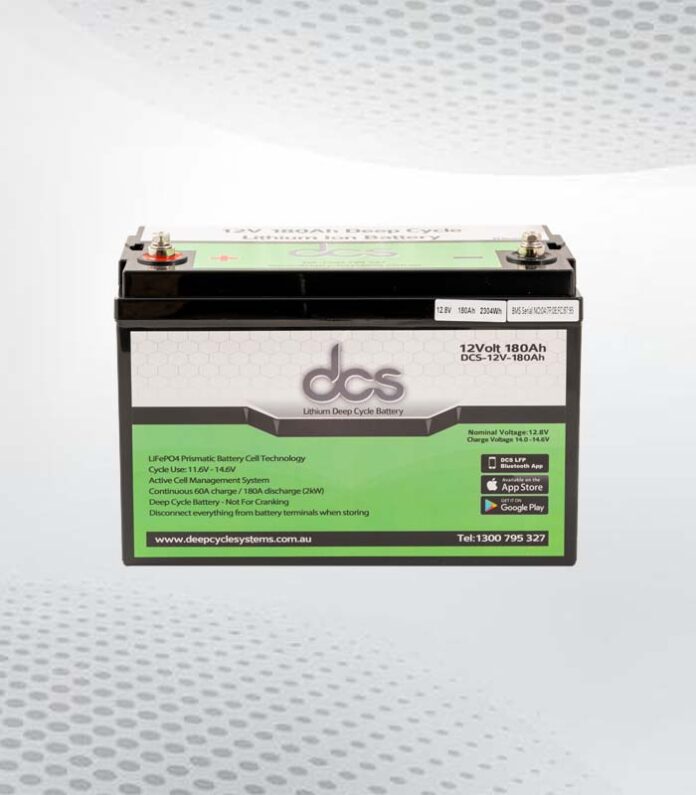If you have been looking into various battery options for your vehicle, boat, or solar system, you may have encountered the term 24 deep cycle battery. But what exactly is a 24V deep-cycle battery, and what makes it different from other battery types? This article aims to unravel the intricacies of a 24V deep-cycle battery and how it could be the perfect solution for your power needs.
Defining a 24V Deep-Cycle Battery
A 24V deep-cycle battery, as the name suggests, operates at a voltage of 24 volts and is designed to be discharged and recharged (or cycled) repeatedly over its lifespan. Unlike other battery types which provide short, high-energy bursts, deep-cycle batteries supply steady, long-term power, making them suitable for applications that require a continuous power supply. This is achieved by repeatedly discharging the stored energy in the battery, often down to 20% of its total capacity, and then recharging it back to 100% – hence the term ‘deep-cycle’. The ’24V’ refers to the nominal voltage produced by the battery.
The actual operating voltage can vary based on the battery’s state of charge and load conditions, but it generally hovers around this figure. The ability to be deeply discharged and recharged without significant loss of capacity is a distinguishing feature of these batteries, setting them apart from regular automotive or starter batteries, which are designed for brief, high-current applications such as starting an engine. As such, 24V deep-cycle batteries are an ideal choice for power-intensive applications such as electric vehicles, boats, and solar power systems, where reliable, long-lasting power is a must.
The Structure and Functionality of a 24V Deep Cycle Battery
The composition of a 24V deep cycle battery is designed to complement its primary function – to discharge a consistent stream of power over extended periods. Within the casing of this battery, there are typically two or more 12V cells connected in series to generate a combined voltage of 24V. Each cell is made up of alternating positive and negative lead plates immersed in a solution of sulphuric acid and water, known as the electrolyte.
When the battery is discharging, a chemical reaction occurs that causes the lead on the plates to combine with the sulphation in the electrolyte, generating lead sulphation and electricity. This process is reversed when the battery is charged, converting the lead sulphation back into lead and sulphuric acid. However, what sets deep-cycle batteries apart is the thickness of their lead plates. Unlike standard batteries, which have thin plates to deliver high bursts of power, deep-cycle batteries possess much thicker plates.
This increased thickness allows these batteries to endure repeated deep discharging without significant deterioration. Furthermore, the unique design of these batteries accommodates the frequent cycling that they undergo. They have a higher number of smaller plates that increase the surface area available for the chemical reaction, thus enhancing their ability to discharge and recharge efficiently.
 Benefits of Using a 24V Deep-Cycle Battery
Benefits of Using a 24V Deep-Cycle Battery
The advantages of employing a 24V deep-cycle battery are manifold. First and foremost, their exceptional durability sets them apart from standard batteries, primarily due to their robust lead plates and cycling ability. This exceptional lifespan means they are a cost-effective investment in the long run, particularly for high-demand applications. Their outstanding energy efficiency means they can provide a consistent flow of power for extended periods, making them an excellent choice for situations where constant energy supply is paramount. This is especially pertinent for off-grid installations where the power supply’s reliability could make a world of difference.
These batteries also offer the versatility of being used in a range of applications, from marine activities to electric vehicles and renewable energy systems, underscoring their adaptability and wide-ranging appeal. It is worth noting that the benefits of a 24V deep-cycle battery can only be fully realized with proper maintenance and handling. This includes ensuring the battery is kept clean, appropriately watered and regularly checked for any damages, alongside preventing it from being overcharged or deeply discharged.
Proper Maintenance for a 24V Deep-Cycle Battery
Ensuring the optimal performance and longevity of your 24V deep-cycle battery requires diligent and regular maintenance.
- To start with, it is essential to keep the battery free from dust, dirt and corrosive build-up. Regularly clean the battery with a soft cloth and a solution of bicarbonate of soda and water, ensuring all connections are tight and corrosion-free.
- Maintaining adequate water levels within the battery is also critical. When required, only use distilled water and fill to the recommended levels to avoid overwatering or under watering, both of which can cause harm to the battery.
- Frequent inspection for visible signs of damage is recommended. This includes cracks, leaks or bulges which could potentially impact the battery’s functioning.
- Avoid overcharging or deep discharging as it could lead to irreversible damage to the battery. Hence, it is essential to use a suitable battery charger specifically designed for deep-cycle batteries, and a quality charge controller to keep the charging within the safe range.
- Conducting regular testing of your battery’s performance can help identify any issues early on and address them promptly, thereby extending the lifespan of the battery. Overall, the key to maximizing your 24V deep-cycle battery’s lifespan lies in meticulous maintenance and care.
Safety Precautions While Handling a 24V Battery Deep Cycle
Handling a 24V battery deep cycle requires careful consideration to ensure your safety. One must always remember that despite their durability, these batteries are electrochemical devices and can be hazardous if mishandled. When installing or maintaining your battery, always wear protective clothing such as safety goggles and gloves to protect against any accidental spillage of the battery acid.
Avoid placing the battery near any flammable substances or in areas of excessive heat, as this can cause the battery to overheat and potentially lead to an explosion. Similarly, when charging the battery, ensure the area is well-ventilated as the charging process can generate gases that may pose a risk if not properly ventilated. Never try to open or tamper with the battery casing as this could result in dangerous leaks or spills.
In the event of accidental acid spillage, it’s important to immediately rinse the affected area with plenty of water and seek medical assistance. It is also essential to remember to disconnect the battery from any power source before carrying out any maintenance work. Always keep the battery out of the reach of children and ensure it is securely positioned to avoid any accidental tipping or falling. By adhering to these safety precautions, one can effectively reduce the risk associated with handling a 24V deep-cycle battery.
Understanding the Battery Capacity and Charging
The capacity of a 24V deep-cycle battery, typically denoted in ampere-hours (Ah), serves as a valuable indicator of the power it can deliver over a certain duration. To illustrate, a battery with a capacity of 100Ah can theoretically supply a load of 1 ampere for 100 hours. However, this is an oversimplified scenario, as actual power delivery can be influenced by numerous factors, including the load’s magnitude, the battery’s state of charge, temperature and age.
When it comes to charging these batteries, particular attention should be paid to the type of charger used. A charger explicitly designed for deep-cycle batteries is recommended to avoid overcharging, a situation that can inflict severe, often irreparable, damage to the battery. Additionally, a quality charge controller can contribute immensely towards ensuring the battery stays within the safe charging parameters.
A charge controller regulates the voltage and current hailing from your solar panels going to your battery. Most controllers come with a variety of features including low voltage disconnect, automatic equalization and temperature compensation, which safeguard the battery from overcharging, thereby enhancing its lifespan and efficiency. This understanding of the capacity and charging nuances of a 24V deep-cycle battery can help maximize its utility and prolong its lifespan.
The Future of 24V Deep Cycle Batteries
As we march into a future defined by renewable energy and electric transportation, the role of 24V deep cycle batteries is poised to become increasingly crucial. They’re being seen as an instrumental component in the global shift towards more sustainable and efficient energy solutions. Their compatibility with solar power systems highlights their potential in the realm of renewable energy.
With improvements in technology and manufacturing processes, these batteries are becoming more efficient, reliable, and affordable. This makes them an attractive option for off-grid solar installations, ensuring a consistent power supply even when sunlight is inconsistent. Furthermore, with the global push towards electric transportation, these batteries are set to play a pivotal role. The demands of electric vehicles – long, consistent power delivery and frequent cycling – align perfectly with the strengths of the 24V deep-cycle battery.
Their extended lifespan and durability make them an appealing choice for electric vehicles, potentially reducing the need for frequent battery replacements. However, the evolution of these batteries is not without its challenges. The task ahead lies in making these batteries more sustainable, from their manufacturing process to disposal. Innovations in battery materials, design, and recycling methods will be key in reducing the environmental impact of these batteries.
FAQs
Q1: How often should I check my 24V deep-cycle battery?
A1: Regular maintenance checks are essential for ensuring your battery’s optimal performance and longevity. A general rule of thumb is to inspect your battery every month, but this can vary depending on usage and environmental conditions.
Q2: Can I use a standard battery charger for my 24V deep-cycle battery?
A2: It is highly recommended to use a charger explicitly designed for deep-cycle batteries to prevent overcharging, which could cause irreversible damage to your battery.
Q3: What is the lifespan of a 24 deep cycle battery?
A3: The lifespan of a 24 deep cycle battery largely depends on its usage, maintenance, and the specific model. With proper care, these batteries can typically last anywhere from 3 to 7 years.
Q4: Can I use a 24V deep-cycle battery for my solar panel system?
A4: Yes, these batteries are excellent for solar panel systems, especially off-grid installations, as they can provide a consistent supply of power over long periods.
Q5: How can I safely dispose of a used 24V deep-cycle battery?
A5: Due to their chemical composition, deep-cycle batteries should not be discarded with regular waste. Many recycling centers and retailers offer battery recycling services. Always ensure you follow local regulations regarding battery disposal.
Conclusion
The 24V deep-cycle battery’s unique structure, efficiency, durability, and wide application range make it an optimal choice for consistent and long-lasting power supply. Its future potential in the spheres of renewable energy and electric vehicles is indeed promising. However, to fully realize these benefits, users must practice diligent maintenance and observe necessary safety precautions. Ultimately, the 24V deep-cycle battery represents a sustainable and dependable energy solution for a myriad of applications.
| Related Business Listings |
| Contact Directory |
| Local Business Profiles |

